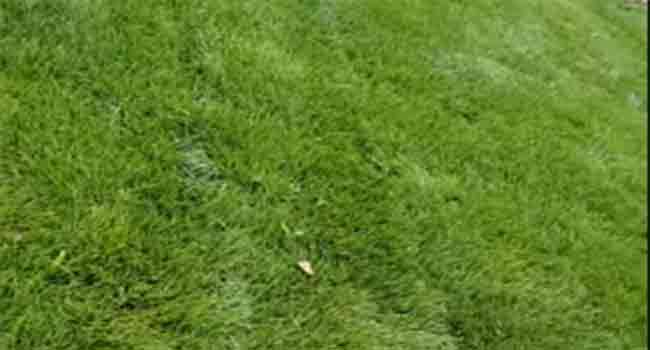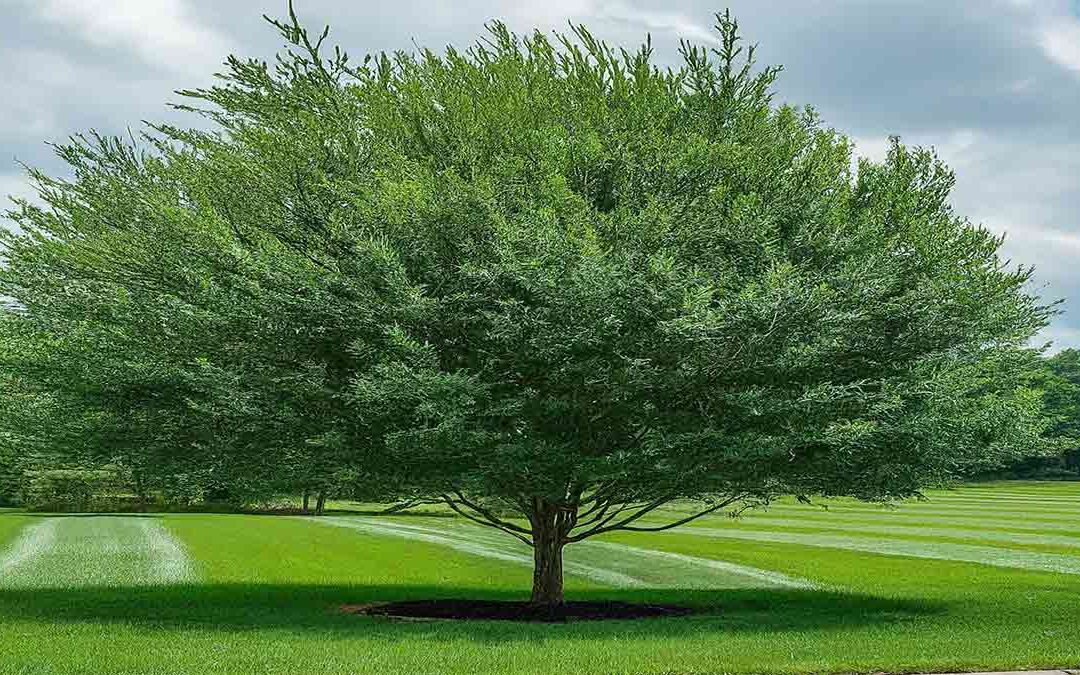Picture a lush, emerald lawn – a backyard oasis where you can unwind, entertain, or watch your kids play. But achieving this verdant dream isn’t just about watering and sunshine. It starts with choosing the right grass seed.
The centipede vs. Bermuda grass debate is a common one among homeowners in the Southeastern and Southern United States. Both are warm-season grasses, but they have distinct characteristics that make them better suited for different situations. This expert-backed guide, will cut through the confusion, providing a clear, concise comparison to help you make an informed decision for your yard.
Head-to-Head Showdown: A Side-by-Side Comparison
Let’s kick off our comparison with a clear, concise look at how these two popular warm-season grasses stack up against each other:
| Feature | Centipede Grass | Bermuda Grass |
| Appearance | Light green, fine texture | Deep green, dense, fine to medium texture |
| Maintenance | Low | High |
| Drought Tolerance | Low to moderate | High |
| Shade Tolerance | Moderate to high | Low |
| Traffic Tolerance | Low | High |
| Growth Rate | Slow to moderate | Fast |
| Cold Tolerance | Low | Moderate |
| Ideal Climate | Warm, humid (Southeastern US) | Warm (Southern US) |
| Soil Preference | Slightly acidic (pH 5.0-6.0) | Adaptable, prefers well-draining |
| Installation Cost | Lower (seed) | Higher (sod) |
| Common Uses | Low-traffic lawns, shady areas | Lawns, sports fields, golf courses |
| Disease/Pest Susceptibility | Large patch, ground pearls | Chinch bugs, dollar spot |

Centipede
Centipede Grass In-Depth: The Low-Maintenance Oasis for Relaxed Lawns
If you’re a homeowner who prefers to spend weekends enjoying your lawn rather than tending to it, centipede grass might be your perfect match. Renowned for its low-maintenance nature, it requires less frequent mowing, fertilizing, and watering than Bermuda grass. Imagine having more time to relax in your backyard oasis instead of pushing a lawnmower!
Benefits of Centipede Grass:
- Shade Tolerance: Thrives in areas with partial shade, making it an excellent choice for yards with trees or buildings.
- Natural Weed Suppression: Its dense growth habit helps crowd out weeds, reducing the need for herbicides.
- Budget-Friendly: Its lower maintenance requirements translate to significant cost savings on water, fertilizer, and pesticides.
Considerations for Centipede Grass:
- Disease Susceptibility: Can be prone to fungal diseases like large patch, especially in poorly drained soil.
- Wear and Tear: Not as resilient as Bermuda grass and can be easily damaged by heavy foot traffic.
- Cold Tolerance: Less cold-hardy than Bermuda grass, making it unsuitable for northern climates.
Bermuda Grass In-Depth: The High-Performance Turf for Active Lawns
Bermuda grass is the showstopper of the lawn world, celebrated for its vibrant green color and ability to withstand heavy use. If you’re looking for a lawn that can handle backyard football games, children playing, or even pets running around, Bermuda grass might be the perfect choice.
Benefits of Bermuda Grass:
- Durability: Known for its exceptional wear tolerance, making it ideal for high-traffic areas.
- Drought Tolerance: Can withstand extended periods of drought, making it a water-wise choice.
- Fast Recovery: Recovers quickly from damage, ensuring your lawn stays lush and green.
Considerations for Bermuda Grass:
- High Maintenance: Requires frequent mowing, fertilizing, and watering to maintain its optimal appearance.
- Invasiveness: Can spread aggressively into flower beds and other areas if not properly contained.
- Sunlight Requirements: Thrives in full sun (6-8 hours daily). Struggles in shaded areas.
- Pest Susceptibility: Can be susceptible to pests like chinch bugs.

Bermuda
Hybrid Bermuda Grass and Overseeding:
| Bermuda Grass Feature | Description |
| Hybrid Varieties | Bred for specific traits like finer texture or improved shade tolerance. |
| Winter Overseeding | In colder climates, overseed with cool-season grasses to maintain green color in winter. |
Making the Right Choice: Your Personalized Grass Selection Guide
What is Soil pH?: Soil pH is a measure of how acidic or alkaline your soil is. A pH of 7 is neutral, while lower numbers indicate acidic soil and higher numbers indicate alkaline soil.
Climate & Soil Considerations:
| Factor | Centipede Grass | Bermuda Grass |
| Ideal Regions | Warm, humid (Southeastern US) | Hot, dry (Southern US) |
| Ideal Soil pH | Slightly acidic (pH 5.0-6.0) | Adaptable, prefers well-draining |
Maintenance Preferences:
Consider your lifestyle and how much time you’re willing to devote to lawn care.
- Low Maintenance: If you prefer a “set it and forget it” approach, centipede grass is a better choice.
- High Maintenance: If you enjoy lawn care and don’t mind the extra effort, Bermuda grass can reward you with a stunning, high-performance lawn.
Personal Preferences:
Ultimately, the “best” grass is the one you love to look at and enjoy. Do you prefer the lighter, more delicate appearance of centipede grass, or does the vibrant, dense green of Bermuda grass appeal to you more? Factor in your aesthetic preferences when making your final decision.
Centipede Grass Varieties for Warm Climates
| Region | Recommended Variety | Notes |
| Southeastern US | Common Centipede | Well-adapted to humid conditions. |
| Southern US | TifBlair Centipede | Offers improved cold tolerance for areas with occasional frosts. |
| Transition Zone | TifBlair Centipede, Oaklawn Centipede | Both offer better cold tolerance for regions with milder winters. |
| Coastal Regions | Common Centipede, Oaklawn Centipede | Tolerate salty air and soil conditions. |
| Areas with Shade | Common Centipede, Oaklawn Centipede, TifBlair Centipede | While centipede grasses are naturally more shade tolerant, consider TifBlair for improved cold hardiness in shaded areas. |
Bermuda Grass Varieties for Warm Climates
| Region | Recommended Variety | Notes |
| Southeastern US | Common Bermuda, Tifway 419 Bermuda | Tifway 419 is often used for sports fields due to its durability and fine texture. |
| Southern US | Common Bermuda, Celebration Bermuda, Princess 77 Bermuda | Celebration Bermuda is valued for its drought tolerance, while Princess 77 is a low-growing, low-maintenance option. |
| Transition Zone | Hybrid Bermuda varieties (e.g., Tifway II, TifSport) | Offer a combination of good looks, durability, and improved cold tolerance compared to common Bermuda. |
| Coastal Regions | SeaIsle 2000 Bermuda | Specifically bred for coastal areas, offering good salt tolerance and wear resistance. |
| Areas with Shade | Hybrid Bermuda varieties with improved shade tolerance | While Bermuda grass generally needs full sun, some hybrid varieties have been developed to handle partial shade. |
Installation Options:
| Installation Method | Pros | Cons |
| Seed | Most affordable, DIY-friendly | Takes longer to establish, requires more care |
| Sod | Instant results, less weed competition | More expensive, professional installation often needed |
| Plugs | Less expensive than sod, DIY-friendly | Takes longer to fill in, requires careful spacing |
FAQ: Centipede Grass vs. Bermuda Grass
1. Which grass is easier to maintain, centipede or Bermuda?
Centipede grass is generally considered to be much lower maintenance than Bermuda grass. It requires less frequent mowing, fertilizing, and watering.
2. Which grass is better for shady lawns?
Centipede grass is the clear winner for shaded lawns. It thrives in areas with partial shade, while Bermuda grass needs full sun to flourish.
3. Which grass is more drought-tolerant?
Bermuda grass is more drought-tolerant than centipede grass, thanks to its deep root system and efficient water use.
4. Which grass is better for high-traffic areas?
Bermuda grass is the better choice for areas with heavy foot traffic, as it is more durable and recovers quickly from damage. Centipede grass is better suited for low-traffic areas.
5. Which grass is more affordable to maintain?
Centipede grass is typically more affordable to maintain due to its lower fertilizer, water, and pesticide requirements.
6. Can I plant centipede and Bermuda grass together?
While it’s technically possible to plant them together, it’s not recommended. Their different growth habits and maintenance needs can lead to an uneven and unhealthy lawn.
7. Which grass is better for my climate?
The best grass for your climate depends on your specific region. Centipede grass is ideal for warm, humid climates (like the Southeastern US), while Bermuda grass thrives in warmer climates (like the Southern US). Check the USDA Hardiness Zone Map to determine your zone and the suitable grasses for your area.
8. Which grass is more environmentally friendly?
Centipede grass is generally considered more environmentally friendly due to its lower fertilizer and water requirements. However, both grasses can be part of a sustainable lawn care plan with proper management practices.
9. Which grass is better for dogs?
Bermuda grass is typically more tolerant of dog urine than centipede grass. However, both grasses can be susceptible to damage from pet waste if not properly managed.
10. Can I overseed Bermuda grass with centipede grass?
It’s not recommended to overseed Bermuda grass with centipede grass. Their different growth habits and maintenance needs will likely lead to an uneven and unhealthy lawn.
Conclusion
Choosing the right grass for your southern lawn is a personal decision. Centipede and Bermuda grass both offer unique advantages and drawbacks. By weighing the factors discussed in this guide, you can confidently select the grass that best suits your climate, lifestyle, and aesthetic preferences.
Remember, a thriving lawn starts with the right foundation. Invest time in understanding your soil and choosing the grass that will flourish in your unique environment. Whether you opt for the low-maintenance charm of centipede or the high-performance allure of Bermuda, your dream lawn is within reach!

